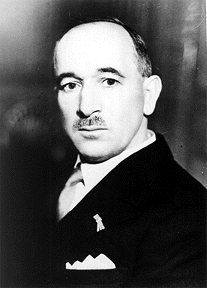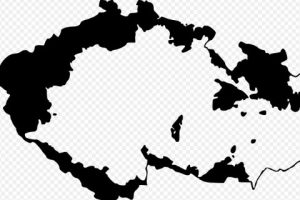The Beneš Decrees
By Tracy A. Burns
The historical background
At the funeral of first Czechoslovak President Tomáš G. Masaryk in 1937, six soldiers carried the democratic leader’s coffin, each representing a different nationality – Czech, Slovak, Hungarian, German, Polish and Ruthenian – residing in prewar Czechoslovakia. By 1938 the coexistence of various ethnic groups in the country had changed drastically as the Munich Agreement ceded the German-speaking Sudetenland to the Third Reich. Then, in March of 1939, Hitler marched into Bohemia and Moravia and set up the Protectorate while Nazi-influenced Slovakia was independent.
The Beneš decrees come into the picture
 Officially called the Decrees of the President of the Republic but known as the Beneš decrees, these extremely controversial laws were issued during World War II by the Czechoslovak government-in-exile in London as there was no Parliament and later by the first postwar government of Czechoslovakia. The decrees declared that Germans, Hungarians, traitors, and collaborators living in the Czech lands and Slovakia would have to relinquish their Czechoslovak citizenship and their property without compensation. Furthermore, approximately three million ethnic Germans and Hungarians were expelled from the country from 1945 to 1947. Some 19,000 Germans died in the process of moving and another 6,000 were murdered.
Officially called the Decrees of the President of the Republic but known as the Beneš decrees, these extremely controversial laws were issued during World War II by the Czechoslovak government-in-exile in London as there was no Parliament and later by the first postwar government of Czechoslovakia. The decrees declared that Germans, Hungarians, traitors, and collaborators living in the Czech lands and Slovakia would have to relinquish their Czechoslovak citizenship and their property without compensation. Furthermore, approximately three million ethnic Germans and Hungarians were expelled from the country from 1945 to 1947. Some 19,000 Germans died in the process of moving and another 6,000 were murdered.
Czechs getting revenge
To be sure, immediately after the war Czechoslovakia was by no means a country championing human rights. Just liberated from more than six years of horrific oppression under the Nazi regime, Czechs wanted Germans off their soil. They hanged some Germans and burned others alive. Germans were also scalped and shot. German women were raped. Even Germans who were ill or elderly were not immune to the Czechs’ desire for revenge as they were beaten. In late 1945, 50,000 people came to Prague to watch the Germans be publicly executed.
Genocide? Ethnic cleansing?
 Admittedly, more than 90 percent of Sudeten Germans had voted for the Nazi party in the 1938 elections, and the ethnic minority that had made up a quarter of Czechoslovakia’s population had greeted Hitler and his SS troops with open arms. Even the Allies supported the decrees. Still in effect today, the laws are highly debated in the Czech lands and abroad. The decrees have caused strained relations between the Czech Republic and Slovakia, Germany, Austria, and Hungary. In Germany and Austria, there are still Sudeten German political parties that fervently campaign for the decrees to be repealed. Some critics consider the laws to fall into the categories of genocide and ethnic cleansing. According to the United Nations-Geneva rules, a crime against humanity remains such, whatever the historical or emotional justification behind it. There should be hardly any disagreement that violence against a civilian population is and remains a crime, whatever ideological or nationalistic reasons are stated.
Admittedly, more than 90 percent of Sudeten Germans had voted for the Nazi party in the 1938 elections, and the ethnic minority that had made up a quarter of Czechoslovakia’s population had greeted Hitler and his SS troops with open arms. Even the Allies supported the decrees. Still in effect today, the laws are highly debated in the Czech lands and abroad. The decrees have caused strained relations between the Czech Republic and Slovakia, Germany, Austria, and Hungary. In Germany and Austria, there are still Sudeten German political parties that fervently campaign for the decrees to be repealed. Some critics consider the laws to fall into the categories of genocide and ethnic cleansing. According to the United Nations-Geneva rules, a crime against humanity remains such, whatever the historical or emotional justification behind it. There should be hardly any disagreement that violence against a civilian population is and remains a crime, whatever ideological or nationalistic reasons are stated.
Reactions to the decrees
In March of 1990 Czechoslovak President Václav Havel tried to make amends by apologizing for Czech violence against Germans during the expulsion. He even inferred that Sudeten Germans might be able to become Czech citizens and get back their property. The Czechoslovak government did not allow his words to become reality, however. In 1993 Theo Waigel, German Chairman of the Christian Social Union in Bavaria and Federal Minister, branded the Czech hypocrites because they condemned the atrocities in former Yugoslavia yet they had not canceled the decrees. On January 21st, 1997, a sort of truce was made. The Czechs and Germans signed a declaration in which both countries apologized for their respective behavior during the war.
Sparking heated debates and membership in the European Union
The Beneš decrees became the deciding factor for the UN Human Rights Committee in the case of Dagmar Broková versus the Czech Republic in 2002. She was not allowed to reclaim her property because it had been transferred to state hands due to the decrees. Before the Czech Republic and Slovakia entered the European Union in 2004, the Beneš decrees again sparked a heated debate. Hungary, Austria, and Germany asserted that the Czech Republic and Slovakia should be forced to repeal the decrees in order to attain membership in the European Union.
The Kinský cause
In 2003 Franz Ulrich Kinský, a member of a renowned noble family from Bohemia, sued Czech courts, asserting that he should get back the property that had been taken away from him as a child and from his ancestors due to the Benes decrees. After World War II the property of his branch of the Kinský family was confiscated because Franz Ulrich’s father had possessed German citizenship and had actively supported the Sudeten German Party. Franz Ulrich, who died in 2009, argued that his family had neither been traitors nor willful collaborators. Two years later the Constitutional Court of the Czech Republic ruled that the confiscation of property under the Beneš decrees is still valid.
Slovakia and Liechtenstein
Slovak and Hungarian relations became more troubled when in 2007 the Slovak Parliament confirmed the Beneš decrees, after the nationalist chairman of the Slovak National Party Ján Slota proposed the resolution. Furthermore, Liechtenstein did not even recognize Slovakia until December of 2009 because the Prince of Liechtenstein had had his property confiscated due to the decrees. That same year, Czech President Václav Klaus, who supports the decrees, was skeptical of the Charter of Fundamental Rights of the European Union because he worried that the declaration would force the Czech Republic to repeal the decrees.
The great controversy today
The Beneš decrees remain a topic of great controversy today. Czechs are keen to point out that other countries that are now members of the European Union had similar laws following World War II. Some Czechs consider the decrees a part of the past that should not be changed after so many years. Some 60 years later, Czechs argue, it is difficult to solve a dilemma that sprung out of the Munich Agreement, the Protectorate of Bohemia and Moravia, and the historical situation right after World War II. Czechs also fear that canceling the decrees would welcome an influx of Germans claiming property in the country. While it does not look like the decrees will be repealed at any time in the near future, it does seem certain that the laws will continue to trigger strong opinions and heated arguments from both sides.



